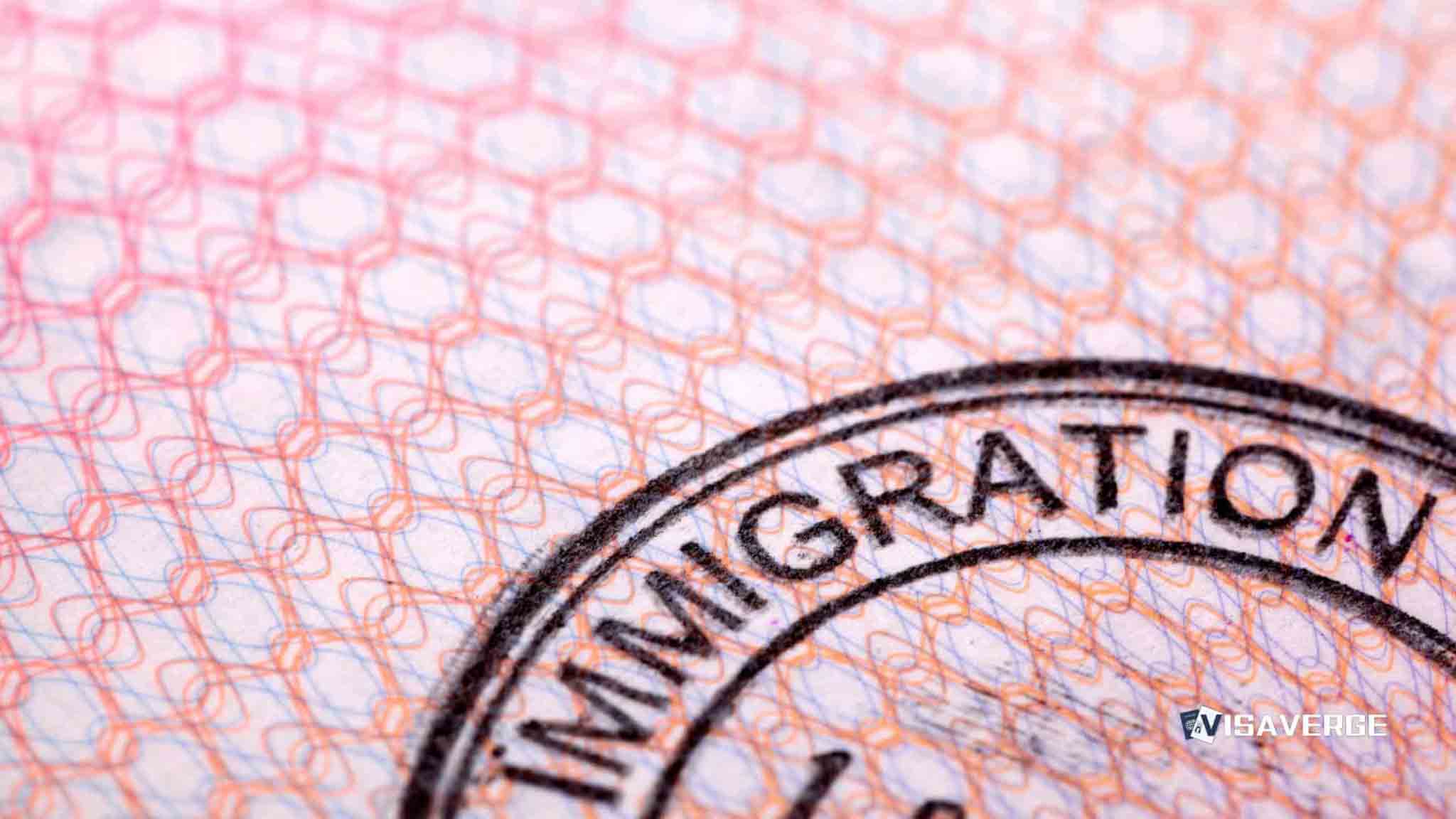(UNITED STATES) Amazon and other U.S. tech giants have surged to the top of the H-1B visa rankings for fiscal year 2025, as new government data shows the companies leading a historic wave of hiring foreign professionals for high‑skill roles. For the first time, four American tech powerhouses hold the top four spots for initial H-1B employment approvals, with Amazon, Meta Platforms, Microsoft, and Google together securing thousands of new visas. The shift comes as Silicon Valley races to staff fast‑growing artificial intelligence projects and build massive data centers across the country.
Top employers for initial H-1B approvals (2025)

According to figures cited by VisaVerge.com from federal records:
- Amazon received 4,644 approvals for new H-1B hires — far ahead of its peers.
- Meta Platforms followed with 1,555 approvals.
- Microsoft had 1,394 approvals.
- Google registered 1,050 approvals.
- Apple ranked sixth overall.
- Tata Consultancy Services placed fifth with 846 approvals.
These firms now dominate the H-1B pipeline for first‑time employment, a space once crowded with large Indian IT outsourcing companies that supplied contract workers to American banks, insurers, and manufacturers.
Comparison with Indian IT employers
- The top seven Indian IT employers together received only 4,573 H-1B approvals for 2025 — less than Amazon alone.
- That total is down about 70% compared with 2015, and about 37% from 2024 levels.
- Only Tata Consultancy Services, LTIMindtree, and HCL America still appear among the top 25 employers for new H-1B workers.
Why the shift is happening
Recruiters and industry observers point to several drivers:
- H-1B hiring has moved away from contract‑heavy work toward direct employment inside U.S. tech giants.
- Large firms are funding roles through massive spending on artificial intelligence, cloud computing, and advanced chips.
- The largest U.S. tech companies have signaled more than $380 billion in planned capital spending for 2025 — earmarked for data centers, servers, and research rather than wage savings.
- For many projects, the cost of filing an H-1B is a relatively small fraction of overall budgets.
New H-1B fee and its effects
For fiscal year 2025, authorities introduced a $100,000 fee per new H-1B visa application, a level that stunned many employers when first announced. While final rules leave questions about how and when the charge applies, its prospect is already altering behavior:
Regularly check USCIS on what constitutes a ‘specialty occupation’ and stay updated on cap changes, as policy shifts can affect eligibility and processing timelines for new H-1B petitions.
- Some smaller firms and startups have shifted work overseas, relying on remote engineers instead of sponsoring visas 🇺🇸.
- Larger employers like Amazon and Meta Platforms appear more willing to absorb higher costs to secure rare skills.
Skills and candidate pools
Immigration attorneys and recruiters note:
- Big firms prioritize workers with deep training in machine learning, data science, and systems design.
- Many candidates are already in the U.S. on student visas and compete for H-1B slots after graduating from American universities.
- The official H-1B page from U.S. Citizenship and Immigration Services explains the visa covers “specialty occupations” that usually require at least a bachelor’s degree or equivalent: https://www.uscis.gov/working-in-the-united-states/temporary-workers/h-1b-specialty-occupations-and-fashion-models
“Specialty occupations” usually require at least a bachelor’s degree or its equivalent.
Geographic concentration of approvals
Geography heavily influences who benefits from approvals:
- California recorded 21,559 new H-1B approvals for 2025 — far ahead of any other state.
- Texas followed with 12,613 approvals.
- New York had 11,436 approvals.
At the city level:
- New York City led with 7,811 new approvals.
- Arlington, Virginia logged 4,836.
- Chicago, San Jose, Santa Clara, and San Francisco each saw more than 2,000 approvals.
(Table for clarity)
| Top states (2025) | Approvals |
|---|---|
| California | 21,559 |
| Texas | 12,613 |
| New York | 11,436 |
| Top cities (2025) | Approvals |
|---|---|
| New York City | 7,811 |
| Arlington, VA | 4,836 |
| Chicago | > 2,000 |
| San Jose | > 2,000 |
| Santa Clara | > 2,000 |
| San Francisco | > 2,000 |
Opportunities and risks for foreign workers
For workers in India and other sending countries, the shift from Indian IT sponsors to direct employment with U.S. firms brings mixed outcomes:
- Benefits:
- Higher salaries at Amazon, Meta Platforms, and peers for comparable roles.
- More direct influence over product decisions.
- Risks:
- Pathways are more selective — requiring advanced degrees, strong research records, or rare technical skills.
- Foreign graduates face pressure to win a scarce H-1B slot quickly or prepare to leave jobs they trained for.
If you’re sponsoring H-1B workers, budget for the potential $100,000 new-application fee and factor in the cost across the company’s 2025 AI, cloud, and data-center projects to avoid surprises.
Longer‑term policy and business implications
Immigration policy specialists highlight key questions:
- Will high fees and tight annual caps push even large firms to keep more work abroad?
- Many companies now design teams mixing U.S. staff and overseas developers who never apply for a visa.
- Foreign graduates at American universities describe growing pressure to secure limited H-1B slots or risk losing U.S. employment soon after starting their careers.
Supporters of the H-1B program argue the 2025 numbers show the visa is essential to keeping R&D in the U.S. rather than watching high‑skill work shift to Asia or Europe. Critics counter that heavy reliance on temporary visas can weaken job security for both foreign and local workers, who may feel easier to replace when projects change.
In Congress, lawmakers from both parties have called for reforms but disagree on specifics — whether to:
- Increase the H-1B cap
- Tighten rules on outsourcing
- Add more protections for U.S. workers
Until any law passes, companies like Amazon, Meta Platforms, Microsoft, and Google will keep balancing intense demand for high‑end skills against rising costs and political scrutiny. Would‑be migrants worldwide are watching closely — and their decisions will shape career paths for thousands of global tech graduates.
Federal records for fiscal 2025 show Amazon leading initial H-1B approvals with 4,644 hires; Meta, Microsoft and Google follow. Indian IT firms’ approvals fell sharply versus prior years. Tech giants cite investments in AI, cloud and data centers—over $380 billion planned—to justify direct hiring. A new $100,000 fee per new H-1B application is already influencing employer behavior, pushing some startups to use remote staffing while large firms absorb costs. Approvals concentrate in California, Texas and New York.








